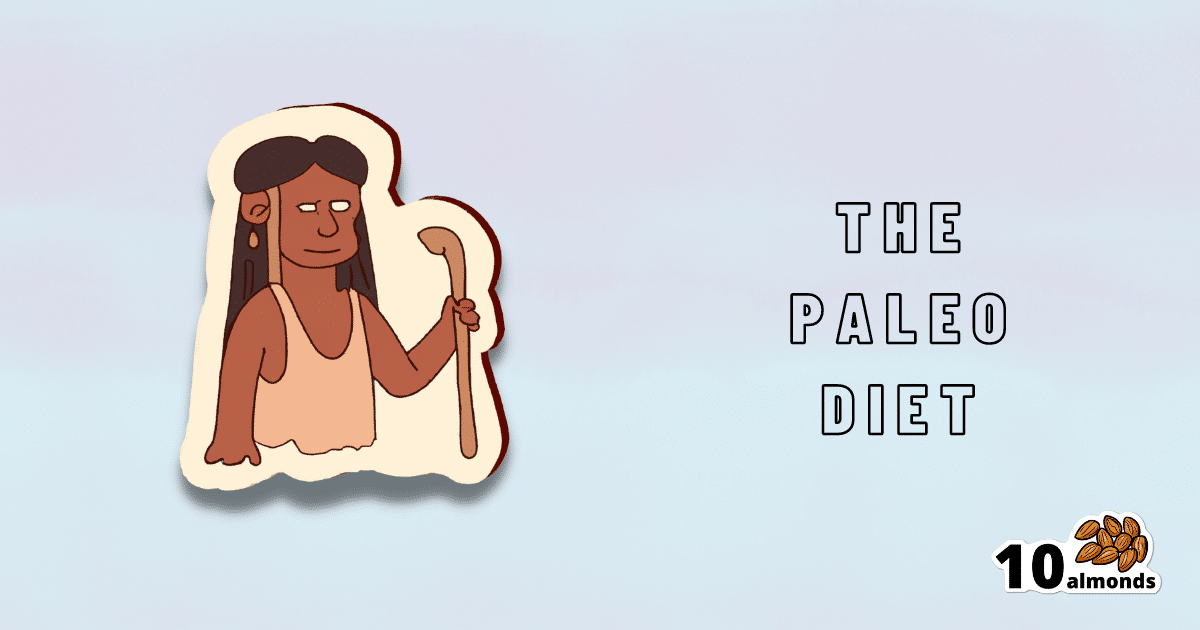The Paleo Diet
The Paleo diet, while popular, lacks historical accuracy and may not be as healthy as the Mediterranean Diet in the long-term. It is associated with increased cardiovascular risk.

What’s The Real Deal With The Paleo Diet?
The Paleo diet is popular, and has some compelling arguments for it.
Detractors, meanwhile, have derided Paleo’s inclusion of modern innovations, and have also claimed it’s bad for the heart.
But where does the science stand?
First: what is it?
The Paleo diet looks to recreate the diet of the Paleolithic era—in terms of nutrients, anyway. So for example, you’re perfectly welcome to use modern cooking techniques and enjoy foods that aren’t from your immediate locale. Just, not foods that weren’t a thing yet. To give a general idea:
Paleo includes:
- Meat and animal fats
- Eggs
- Fruits and vegetables
- Nuts and seeds
- Herbs and spices
Paleo excludes:
- Processed foods
- Dairy products
- Refined sugar
- Grains of any kind
- Legumes, including any beans or peas
Enjoyers of the Mediterranean Diet or the DASH heart-healthy diet, or those with a keen interest in nutritional science in general, may notice they went off a bit with those last couple of items at the end there, by excluding things that scientific consensus holds should be making up a substantial portion of our daily diet.
But let’s break it down…
First thing: is it accurate?
Well, aside from the modern cooking techniques, the global market of goods, and the fact it does include food that didn’t exist yet (most fruits and vegetables in their modern form are the result of agricultural engineering a mere few thousand years ago, especially in the Americas)…
…no, no it isn’t. Best current scientific consensus is that in the Paleolithic we ate mostly plants, with about 3% of our diet coming from animal-based foods. Much like most modern apes.
Ok, so it’s not historically accurate. No biggie, we’re pragmatists. Is it healthy, though?
Well, health involves a lot of factors, so that depends on what you have in mind. But for example, it can be good for weight loss, almost certainly because of cutting out refined sugar and, by virtue of cutting out all grains, that means having cut out refined flour products, too:
Diet Review: Paleo Diet for Weight Loss
Measured head-to-head with the Mediterranean diet for all-cause mortality and specific mortality, it performed better than the control (Standard American Diet, or “SAD”), probably for the same reasons we just mentioned. However, it was outperformed by the Mediterranean Diet:
So in lay terms: the Paleo is definitely better than just eating lots of refined foods and sugar and stuff, but it’s still not as good as the Mediterranean Diet.
What about some of the health risk claims? Are they true or false?
A common knee-jerk criticism of the paleo-diet is that it’s heart-unhealthy. So much red meat, saturated fat, and no grains and legumes.
The science agrees.
For example, a recent study on long-term adherence to the Paleo diet concluded:
❝Results indicate long-term adherence is associated with different gut microbiota and increased serum trimethylamine-N-oxide (TMAO), a gut-derived metabolite associated with cardiovascular disease. A variety of fiber components, including whole grain sources may be required to maintain gut and cardiovascular health.❞
Bottom line:
The Paleo Diet is an interesting concept, and certainly can be good for short-term weight loss. In the long-term, however (and: especially for our heart health) we need less meat and more grains and legumes.
Share This Post
Learn To Grow
Sign up for weekly gardening tips, product reviews and discounts.




